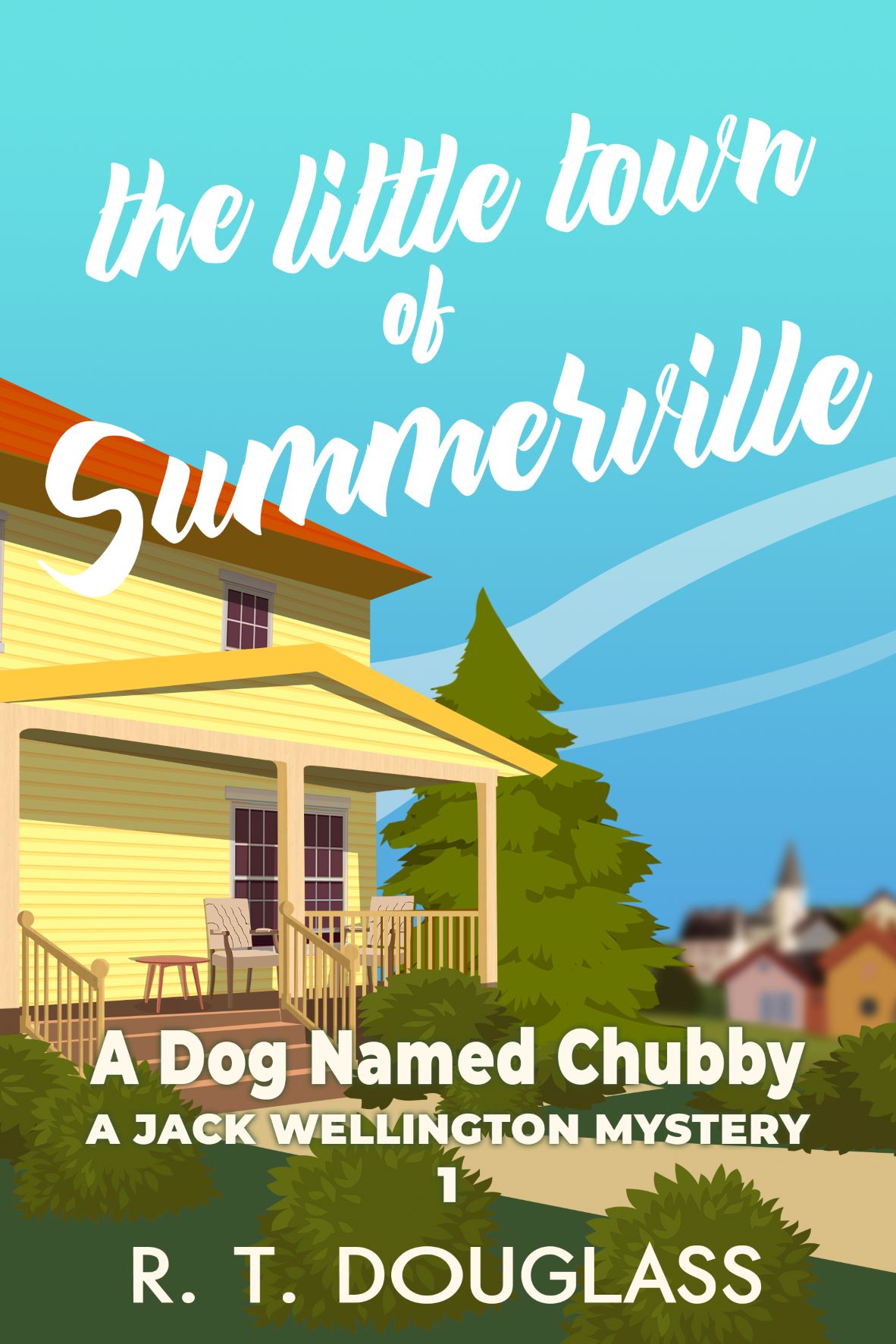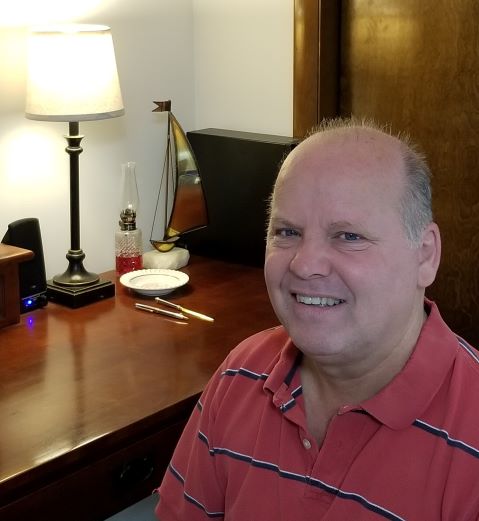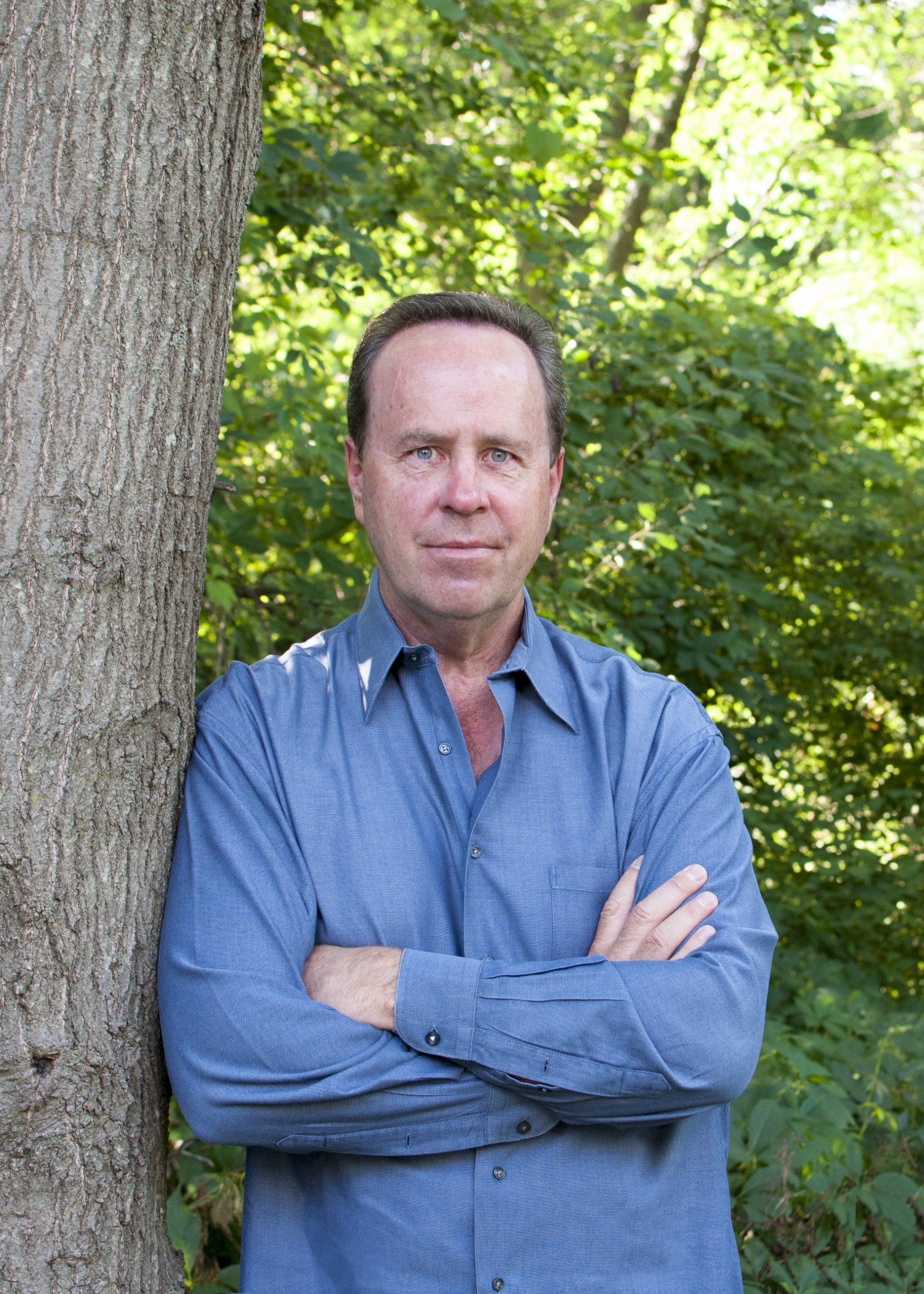When wildlife biologist Alex Lowe is found dead inside Great Smoky Mountains National Park, it looks on the surface like a suicide. But Tsula Walker, Special Agent with the National Park Service’s Investigative Services Branch and a member of the Eastern Band of Cherokee Indians, isn’t so sure.
Tsula’s investigation will lead her deep into the park and face-to-face with a group of lethal men on a mission to reclaim a historic homestead. The encounter will irretrievably alter the lives of all involved and leave Tsula fighting for survival – not only from those who would do her harm, but from a looming winter storm that could prove just as deadly.
“[A] striking debut . . . a highly enjoyable read suited best to those who like their thrillers to simmer for awhile before erupting in a blizzard of action and unpredictability . . ." Kashif Hussain, Best Thriller Books.
"C. Matthew Smith’s original, intelligent novel delivers unforgettable characters and an irresistible, page-turning pace while grappling with deeply fascinating issues of land and heritage and what and who is native.... Twentymile is an accomplished first novel from a talented and fully-formed writer." James A. McLaughlin, Edgar Award-winning author of Bearskin
HARLAN
CHAPTER ONE
May 10
The same moment the hiker comes upon them, rounding the bend in the trail, Harlan knows the man will die.
He takes no pleasure in the thought. So far as Harlan is aware, he has never met the man and has no quarrel with him. This stranger is simply an unexpected contingency. A loose thread that, once noticed, requires snipping.
Harlan knows, too, it’s his own fault. He shouldn’t have stopped. He should have pressed the group forward, off the trail and into the concealing drapery of the forest. That, after all, is the plan they’ve followed each time: Keep moving. Disappear.
But the first sliver of morning light had crested the ridge and caught Harlan’s eye just so, and without even thinking, he’d paused to watch it filter through the high trees. Giddy with promise, he’d imagined he saw their new future dawning in that distance as well, tethered to the rising sun. Cardinals he couldn’t yet spot were waking to greet the day, and a breeze picked up overhead, soughing through shadowy crowns of birch and oak. He’d turned and watched the silhouettes of his companions taking shape. His sons, Otto and Joseph, standing within arm’s length. The man they all call Junior lingering just behind them.
The stranger’s headlamp sliced through this reverie, bright and sudden as an oncoming train, freezing Harlan where he stood. In all the times they’ve previously made this journey—always departing this trail at this spot, and always at this early hour—they’ve never encountered another person. Given last night’s thunderstorm and the threat of more to come, Harlan wasn’t planning on company this morning, either.
He clamps his lips tight and flicks his eyes toward his sons—be still, be quiet. Junior clears his throat softly.
“Mornin’,” the stranger says when he’s close.
The accent is local—born, like Harlan’s own, of the surrounding North Carolina mountains—and his tone carries a hint of polite confusion. The beam of his headlamp darts from man to man, as though uncertain of who or what most merits its attention, before settling finally on Junior’s pack.
The backpack is a hand-stitched canvas behemoth many times the size of those sold by local outfitters and online retailers. Harlan designed the mammoth vessel himself to accommodate the many necessities of life in the wilderness. Dry goods. Seeds for planting. Tools for construction and farming. Long guns and ammunition. It’s functional but unsightly, like the bulbous shell of some strange insect. Harlan and his sons carry similar packs, each man bearing as much weight as he can manage. But it’s likely the rifle barrel peeking out of Junior’s that has now caught the stranger’s interest.
Harlan can tell he’s an experienced hiker, familiar with the national park where they now stand. Few people know of this trail. Fewer still would attempt it at this hour. Each of his thick-knuckled hands holds a trekking pole, and he moves with a sure and graceful gait even in the relative dark. He will recognize—probably is just now in the process of recognizing—that something is not right with the four of them. Something he may be tempted to report. Something he might recall later if asked.
Harlan nods at the man but says nothing. He removes his pack and kneels as though to re-tie his laces.
The hiker, receiving no reply, fills the silence. “How’re y’all do—”
When Harlan stands again, he works quickly, covering the stranger’s mouth with his free hand and thrusting his blade just below the sternum. A whimper escapes through his clamped fingers but dies quickly. The body arches, then goes limp. One arm reaches out toward him but only brushes his shoulder and falls away. Junior approaches from behind and lowers the man onto his back.
Even the birds are silent.
Joseph steps to his father’s side and offers him a cloth. Harlan smiles. His youngest son is a carbon copy of himself at eighteen. The wordless, intent glares. The muscles tensed and explosive, like coiled springs straining at a latch. Joseph eyes the man on the ground as though daring him to rise and fight.
Harlan removes the stranger’s headlamp and shines the beam in the man’s face. A buzz-cut of silver hair blanches in this wash of light. His pupils, wide as coins, do not react. Blood paints his lips and pools on the mud beneath him, smelling of copper.
“I’m sorry, friend,” Harlan says, though he doubts the man can hear him. “It’s just, you weren’t supposed to be here.” He yanks the knife free from the man’s distended belly and cleans it with the cloth.
From behind him comes Otto’s fretful voice. “Jesus, Pop.”
Harlan’s eldest more resembles the men on his late wife’s side. Long-limbed and dour. Quiet and amenable, but anxious. When Harlan turns, Otto is pacing along a tight stretch of the trail with his hands clamped to the sides of his head. His natural state.
“Shut up and help me,” Harlan says. “Both of you.”
He instructs his sons to carry the man two hundred paces into the woods and deposit him behind a wide tree. Far enough away, Harlan hopes, that the body will not be seen or smelled from the trail any time soon. “Wear your gloves,” he tells them, re-sheathing the knife at his hip. “And don’t let him drag.”
As Otto and Joseph bear the man away, Harlan pockets the lamp and turns to Junior.
“I know, I know,” he says, shaking his head. “Don’t look at me like that.”
“Like what?”
Harlan sweeps his boot back and forth along the muddy trail to smooth over the odd bunching of footprints and to cover the scrim of blood with earth. He’s surprised to find his stomach has gone sour. “No witnesses,” he says. “That’s how it has to be.”
“People go missing,” Junior says, “and other people come looking.”
“By the time they do, we’ll be long gone.”
Junior shrugs and points. “Dibs on his walking sticks.”
Harlan stops sweeping. “What?”
“Sometimes my knees hurt.”
“Fine,” Harlan says. “But let’s get this straight. Dibs is not how we’re going to operate when we get there.”
Junior blinks and looks at him. “Dibs is how everything operates.”
Minutes later, Otto and Joseph return from their task, their chests heaving and their faces slick. Otto gives his younger brother a wary look, then approaches Harlan alone. When he speaks, he keeps his voice low.
“Pop—”
“Was he still breathing when you left him?”
Otto trains his eyes on his own feet, a drop of sweat dangling from the tip of his nose.
“Was he?”
Otto shakes his head. He hesitates for a moment longer, then asks, “Maybe we should go, Pop? Before someone else comes along?”
Harlan pats his son’s hunched neck. “You’re right, of course.”
The four grunt and sway as they re-shoulder their packs. Wooden edges and sharp points dig into Harlan’s back and buttocks through the canvas, and the straps strain against his burning shoulders. But he welcomes this discomfort for what it means. This, at last, is their final trip.
This time, they’re leaving for good.
They fan out along the edge of the trail, the ground sopping under their boots. Droplets rain down, shaken free from the canopy by a gust of wind, and Harlan turns his face up to feel the cool prickle on his skin. Then he nods to his companions, wipes the water from his eyes, and steps into the rustling thicket.
The others follow after him, marching as quickly as their burdens allow.
Melting into the trees and the undergrowth.
PART I:
DRIFT
TSULA
CHAPTER TWO
October 26
By the time the two vehicles she’s expecting appear at the far end of the service road, Tsula is already glazed with a slurry of sweat and south Florida sand so fine it should really be called dust. She hasn’t exerted herself in the slightest—she parked, got out of her vehicle, waited for the others to arrive—but already she longs for a shower. She wipes her brow with an equally damp forearm. It accomplishes little.
“Christ almighty.”
Tsula grew up in the Qualla Boundary—the eighty square miles of western North Carolina held by the federal government in trust for the Eastern Band of Cherokee Indians—and had returned to her childhood home two years ago after a prolonged absence. This time of year in the Qualla, the mornings are chilly and the days temperate, autumn having officially shooed summer out of the mountains. In northern Wyoming, where she’d spent nearly two decades of her adult life, it takes until mid-morning in late October for the frost to fully melt. Tsula understands those rhythms—putting on layers and shedding them, freezing and thawing. The natural balance of it. But only miles from where she stands, in this same ceaseless heat, lies the Miami-Dade County sprawl. It baffles her. Who but reptiles could live in this swelter?
Tsula raises her binoculars. A generic government-issued SUV, much like her own, leads the way. An Everglades National Park law enforcement cruiser follows close behind.
She looks down at her watch: 11:45 a.m.
Tsula flaps the front of her vented fishing shirt to move air against her skin. The material is thin, breathable, and light tan, but islets of brown have formed where the shirt clings to perspiration on her shoulders and chest. She removes her baseball cap, fans her face, and lifts her ponytail off her neck. In this sun, her black hair absorbs the heat like the hood of a car, and she would not at all be surprised to find it has burned her skin. For a moment, she wishes it would go ahead and gray. Surely that would be more comfortable.
The vehicles pull to a stop next to her, and two men exit. Fish and Wildlife Commission Investigator Matt Healey approaches first. He is fifty-something, with the tanned and craggy face of someone who has spent decades outside. Tsula shakes his hand and smiles.
“Special Agent,” he says, scratching at his beard with his free hand.
The other man is younger—in his late twenties, Tsula figures—and dressed in the standard green-and-gray uniform of a law enforcement park ranger. He moves with a bounding and confident carriage and thrusts out his hand. “Special Agent, I’m Ranger Tim Stubbs. Welcome to Everglades. I was asked to join y’all today, but I’m afraid they didn’t give me much other info. Can someone tell me what I’m in for?”
“Poachers,” Healey answers. “You’re here to help us nab some.”
“We investigate poaching every year,” Stubbs says, nodding toward Tsula. “Never get the involvement of the FBI.”
“ISB,” she corrects him. “Investigative Services Branch? I’m with the Park Service.”
“Never heard of it,” Stubbs says.
“I get that a lot.”
Whether he knows it or not, Stubbs has a point. The ISB rarely, if ever, involves itself in poaching cases. Most large parks like Everglades have their own law enforcement rangers capable of looking into those of the garden variety. Federal and state fish and wildlife agencies can augment their efforts where necessary. At just over thirty Special Agents nationwide, and with eighty-five million acres of national park land under their jurisdiction from Hawaii to the U.S. Virgin Islands, this little-known division of the Park Service is too thinly staffed to look into such matters when there are suspicious deaths, missing persons, and sexual assaults to investigate.
But this case is different.
“It’s not just what they’re taking,” Healy says. “It’s how much they’re taking. Thousands of green and loggerhead turtle eggs, gone. Whole nests cleaned out at different points along Cape Sable all summer long. Always at night so cameras don’t capture them clearly, always different locations. They’re a moving target.”
“We’ve been concerned for a while now that they may be getting some assistance spotting the nests from inside the park,” Tsula adds. “So, we’re keeping it pretty close to the vest. That’s why no one filled you in before now. We don’t want to risk any tip-offs.”
“What would anyone want with that many eggs?”
“Black market,” Healey says.
“You’re kidding.”
Healey shakes his head. “Sea turtle eggs go down to Central America where they’re eaten as an aphrodisiac. Fetch three to five bucks apiece for the guy stateside who collects them. Bear paws and gallbladders go over to Asia. All kinds of other weird shit I won’t mention. And, of course, there are the live exotics coming into the country. Billions of dollars a year in illegal animal trade going all over the world. One of the biggest criminal industries besides drugs, weapons, and human trafficking. This many eggs missing—it’s like bricks of weed or cocaine in a wheel well. This isn’t some guy adding to his reptile collection or teenagers stealing eggs on a dare. This is commerce.”
Tsula recognizes the speech. It’s how Healey had hooked her, and how she in turn argued her boss into sanctioning her involvement. “Sure, most poaching is small-potatoes,” he told her months ago. He’d invited her for a drink that turned out to be a pitch instead. “Hicks shooting a deer off-season on government land and similar nonsense. This isn’t that. You catch the right guys, and they tell you who they’re selling to, maybe you can follow the trail. Can you imagine taking down an international protected species enterprise? Talk about putting the ISB on the map.”
“So maybe that’s what’s in it for me,” Tsula said, peeling at the label on her bottle. “Why are you so fired up?”
He straightened himself on his stool and drew his shoulders back. “These species are having a hard enough time as it is. Throw sustained poaching on top, it’s going to be devastating. I want it stopped. Not just the low-level guys, either. We put a few of them in jail, there will always be more of them to take their place. I want the head lopped off.”
Tsula had felt a thrill at Healey’s blunt passion and the prospect of an operation with international criminal implications. Certainly, it would be a welcome break from the child molestation and homicide cases that ate up her days and her soul, bit by bit. It took three conversations with the ISB Atlantic Region’s Assistant Special Agent in Charge, but eventually he agreed.
“This better be worth it,” he told her finally. “Bring some people in, get them to tell us who they’re working for. We may have to let the FBI in after that, but you will have tipped the first domino.”
Their investigation had consumed hundreds of man-hours across three agencies but yielded little concrete progress for the first several months. Then a couple weeks ago, Healey received a call from the Broward County State Attorney’s office. A pet store owner under arrest for a third cocaine possession charge was offering up information on turtle egg poachers targeting Everglades in a bid for a favorable plea deal. Two men had recently approached the store owner, who went by the nickname Bucky, about purchasing a small cache of eggs they still had on hand. It was toward the end of the season, and the recent yields were much smaller than their mid-summer hauls. Since many of the eggs they’d gathered were approaching time to hatch, the buyers with whom the two men primarily did business were no longer interested. The two men were looking for a legally flexible pet store owner who might want to sell hatchlings out the back door of his shop.
Tsula decided to use Bucky as bait. At her direction, he would offer to purchase the remaining eggs but refuse to conduct the sale at his store. The strip mall along the highway, he would explain, was too heavily trafficked for questionable transactions. But he knew a quiet place in the pine rocklands near the eastern border of the park where he liked to snort up and make plans for his business. They could meet there.
“Do I really have to say the part about snorting up?” Bucky had asked her, scratching his fingernails nervously on the interrogation room table. “I really don’t want that on tape. My parents are still alive.”
“You think they don’t know already?” Tsula said. “You don’t like my plan, good luck with your charges and your public defender here. How much time do you figure a third offense gets you?”
At his lawyer’s urging, Bucky finally agreed. The plan was set in motion, with the operation to take place today.
“So how are we looking?” Healey asks.
“Bucky’s on his way,” Tsula says. “I met with him earlier for a final run-through, got him mic’d up. We’re going to move the vehicles behind the thicket over there and wait. I’ve scouted it out. We’ll be concealed from the road. The purchase will take place about 12:30. As soon as Bucky has the eggs, we make our move.”
“I’ll secure the eggs,” Healy says. “You guys reel in some assholes.”
Tsula looks at Stubbs. His jaw is clenched, his eyes suddenly electric. “I’ll ride with you when it’s time, if that’s alright,” she says. “Keep it simple.”
They move their vehicles behind the wall of climbing fern and ladies’ tresses. Tsula exits her SUV, takes a concealed vantage point behind the brush, and raises her binoculars. To her left, a breeze has picked up and is swaying the distant sawgrass. A golden eagle circles effortlessly on a thermal, its attention trained on something below. Directly beyond the thicket where she stands, a large expanse of grass spreads out for a quarter mile before giving way to a dense stand of pine trees. To her right, that same open field stretches perhaps two miles, bordered by the service road on which Healy and Stubbs had just come in. All is silent but the soft hum of the breeze.
Bucky’s rust-colored compact bounces up the road around 12:15 and disappears as it passes on the opposite side the thicket. Minutes later, a mud-flecked pickup on oversized tires proceeds the same direction up the road, dragging a dust plume like a thundercloud behind it.
Tsula turns, nods to Healey, and climbs quietly into Stubbs’s cruiser. She inserts her earpiece and settles into the seat. Stubbs looks over at her expectantly, his hand hovering over the ignition.
Tsula shakes her head. “Not yet.”
***
Excerpt from Twentymile by C. Matthew Smith. Copyright 2021 by C. Matthew Smith. Reproduced with permission from C. Matthew Smith. All rights reserved.
C. Matthew Smith is an attorney and writer whose short stories have appeared in and are forthcoming from numerous outlets, including Mystery Tribune, Mystery Weekly, Close to the Bone, and Mickey Finn: 21st Century Noir Vol. 3 (Down & Out Books). He’s a member of Sisters in Crime and the Atlanta Writers Club.
Visit these other great hosts on this tour for more great reviews, interviews, guest posts, and giveaways!
My Take: This book is an exciting thriller that takes place in the Smoky Mountains and involves a Cherokee female agaent that is sent to investigate the death of a wildlife Biologist. This story involves a group of people that feel they have been wronged by the government and the female agent gets invovled while she is investigating. Also a winter storm is coming which could kill Tsula Walker also. This is an exciting and twisty turny thriller that kept me on the edge of my seat the whole time I was reading it.
I received a review copy of this book from Partners in Crime Tours and was not required to write a positive review.


























